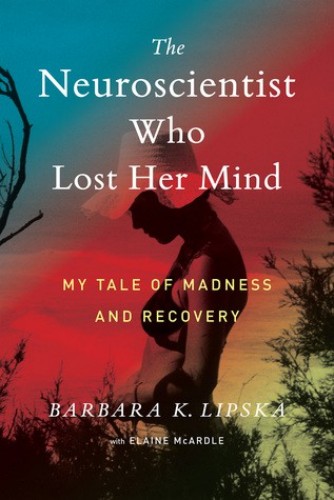
The Neuroscientist Who Lost Her Mind
My Tale of Madness and Recovery
کتاب های مرتبط
- اطلاعات
- نقد و بررسی
- دیدگاه کاربران
نقد و بررسی

November 1, 2017
Lipska specializes in the neuroscience of mental illness, so it was blisteringly ironic when she was diagnosed with melanoma that had leeched into her brain, eventually leading to dementia- and schizophrenia-like symptoms. She recovered but clearly remembers what it's like to lose one's mind. With a 100,000-copy first printing.
Copyright 2017 Library Journal, LLC Used with permission.

February 15, 2018
A vibrant mental health expert's bout with brain cancer and the revolutionary treatments that saved her life.In 2015, Lipska, a veteran neuroscientist and triathlete who studies brains at the National Institute of Mental Health, found herself in a panic while out jogging in her suburban Virginia neighborhood. Without warning, she suddenly didn't recognize her surroundings and became severely disoriented. Her confusion dissipated, and then she received a devastating diagnosis of metastatic melanoma in her brain emerged. The resulting grueling two-month ordeal battling debilitating mental problems forms the core of this intensive memoir. The author briefly sketches the details of her history as a young, ambitious research scientist in Poland who eventually moved her family to America to pursue the study of brain illnesses and schizophrenia. In 2009, she underwent a mastectomy after a breast cancer diagnosis. In frank, unfettered prose, Lipska clearly demonstrates her courage, resilience, and pure dread in the face of disease and adversity. Of the three tumors found in her brain, one particularly "nasty raisin," vexingly located in the folds of her visual cortex," was bleeding. Though excised immediately, the author's mental acuity deteriorated. Through urgent and vigorous passages, the author chronicles a valiant fight for her life, with radiation treatments and an immunotherapy trial, which caused a whole new subset of medical maladies. Toward the end of the treatment plan, her behavior went haywire, and she suffered cognitive impairment, rage, paranoia, and bafflement, all of which crowded out any semblance of rationality. Eventually, however, the treatments worked, and Lipska experienced a miraculous (and statistically rare) "second chance at sanity." Throughout it all, the sheer irony of her ordeal never escaped her: "I am living through some of the processes of a disease that I've spent my life studying and trying to cure."A harrowing, intimately candid survivor's journey through the minefields of cancer treatment.
COPYRIGHT(2018) Kirkus Reviews, ALL RIGHTS RESERVED.

February 26, 2018
In a terrifying moment one morning in January 2015, neuroscientist Lipska lost sight of her right-hand while she was eating breakfast. As she reveals in this fast-paced memoir, her symptoms eventually lead her doctors to discover that a melanoma had spread to her brain. Although she studied brain disorders for a living, she was afraid to look at the first MRIs of her own brain, admitting that her brain was a “mortal danger” to her. Following surgery to remove the small malignant tumor that caused vision loss, Lipska, hopeful she could return to normal life, began an intensely active physical regimen of cycling and running. Within a few weeks, however, she experienced dementia- and schizophrenia-like symptoms, exhibiting aggressive behavior, caused by what she would learn were lesions in her brain. Lipska shares excruciating details of the drug therapies and other treatments she underwent, such as radiation and taking immunotherapy drugs. She recognizes that she will never be the same and that she must deal with brain scans and other tests the rest of her life, but she revels in the pleasures of living every day with her family. Her exhilarating memoir reveals the frustrations of slow recovery, and that even with the best medical care there are no guarantees for good health.

























دیدگاه کاربران